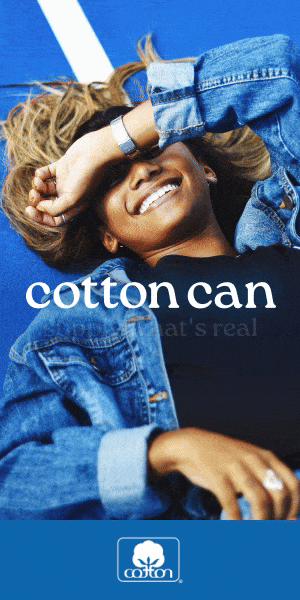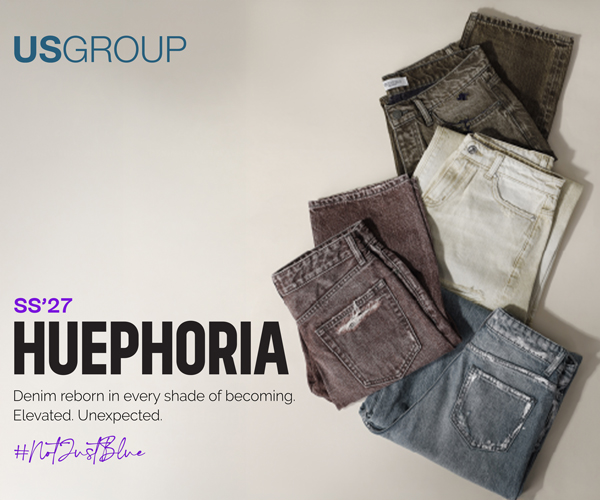Tilmann Wrobel: We cannot go back to the ‘Textiles Hunger Games’

Denim consultant Tilmann Wrobel feels strongly that the power balance between retailers, brands and manufacturers needs to be urgently addressed, and sees the current climate creating the biggest opportunity for R&D in a long time.
What has been the biggest change for your business or way of working since the pandemic started?
I would say the three biggest changes are:
1) Fast achievements with new denim clients who run start-up Instagram businesses, which are not (or almost not) impacted by the virus
2) ‘large structure’ clients (mills, manufacturers), mainly in Asia, having hard times; and
3) spending hours on the computer with Webex / Team / Zoom meetings (and no more travelling outside of continental Europe).
How do you think the pandemic has affected or might affect sustainability initiatives, or R&D?
The pandemic is actually boosting sustainability initiatives. It is good to see that many consumers, as well as the denim industry itself, are going deeper into it, rather than accepting “greenwashing” initiatives. R&D in denim is witnessing one of the biggest opportunities it has had in long time. Today’s commuter and “city life” in general has new demands. Utility and protection in denim have become must-haves rather than a gimmick. And I think we are still only at the beginning of what’s to come, in terms of innovation.
What will the consumers be looking for in the future, how will this affect design?
The feeling we get is that consumers will not look in one direction. I highlighted this in a recent project on trends made exclusively for the BLUEZONE fair: there will be quite diverse and contradictory directions. We will witness subtle, long-lasting and understated products as much as crazy, survival-punkish, luxury driven, emotional trend-lightings.
These correspond to the two main ‘consumer families’, which are: on one side those who have learned from the pandemic, are trying to slow down, care for nature, for our planet and our children. And on the other side are consumers who are continuing to live a bold and vibrant hedonistic life, having the attitude: “Who knows what’s next?” It seems to me that it is important for every player in the industry - brand, manufacturer, fair - to determine its own place in this new constellation.
How could good buyers or brands be rewarded, could there be more regulations to help manufacturers in terms of orders?
Our world has created global regulations for everything - money, stock markets, milk production, tomato production - but no in-depth regulations for textile manufacturing. The pandemic has revealed how critical the absence of regulations is in our globally linked textile world. A buyer from a large retail chain can place a “claim” on a manufactured product for a questionable “micro-default” and obtain a 10% or 15% price reduction, he can refuse a delivery of hundreds of millions manufactured goods, pushing entire manufacturing countries into misery.
This cannot go on. We have to face the fact that our textile industry relies on a global network and international buying rules and regulations have to be created; rules that put buyers and manufacturers in a well-balanced and equal position.
What will happen to those millions of "cancelled but manufactured" branded goods that are still in the eastern warehouses? An ecological drama? And/or a commercial and human drama? We must act now, before our textile industry goes back to “business as usual”, where only the manufacturer who "kneels best" survives the modern-day Textiles-Hunger-Games. Clear regulations on buying practices and respect of placed orders are needed. Why not create an international textile fund that could address, regulate and solve problems, with budgets, when a crisis is hitting hard?
What good things could come about, as a result of 2020’s turmoil?
It is always good to have a look in the mirror. The pandemic has given us a dramatic reality check.
The good thing is that we have learned a lot about the importance of doctors, medication, medical insurance, access to healthcare, about how important it is to manufacture medication and masks etc locally. It was a reality check to discover which industries and manufacturers were most vital to help us survive when the going gets tough.
And in a more trivial way, about the importance of social contacts (even with distance ); on the way we dress. Will it change how things work? Will it change us, as humans? Let’s have a toast with a drop of a delicious drink, to say, “We’d like to believe in a positive change!”
Tilmann Wröbel is the founder and creative director of Monsieur-T, the ‘Denim Lifestyle’ studio. He started his career as a haute couture designer and segued into streetwear and denim through his love of skating. He has worked as a designer and consultant for some of the world’s top brands, and is based in Paris, France.












